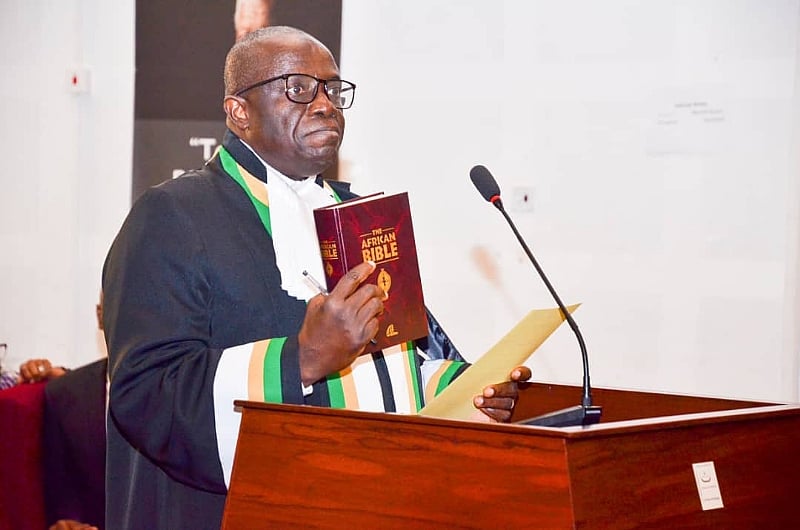Justice Sir Dennis Dominic Adjei, a nominee for the Supreme Court of Ghana, has advocated for a significant reform within the Ghanaian judicial system: the abolishment of the practice of appointing judges from superior courts to preside over cases in lower courts. This system, which Justice Adjei asserts is unique to Ghana, allows for the assignment of, for instance, a Court of Appeal judge to a High Court case, or a High Court judge to a Circuit Court case. He argues that this practice creates an environment susceptible to undue influence and erodes public trust in the judicial process, particularly given the sufficient number of qualified judges at each court level. Justice Adjei’s concerns stem from the potential for perceived or actual bias when a judge from a higher court intervenes in a lower court’s proceedings. This practice, he contends, raises questions about the competence of the lower court judges and casts a shadow over the impartiality of the judicial system.
The core of Justice Adjei’s argument rests on the principle of judicial independence and the importance of maintaining public confidence in the fairness and impartiality of the courts. He posits that the current system, by allowing for the assignment of judges across court levels, opens the door to speculation and suspicion. The presence of a higher-court judge in a lower court inevitably leads to questions about why a judge from that lower court could not handle the case, implicitly suggesting a lack of confidence in the assigned judge’s abilities or impartiality. Even the mere perception of external influence, Justice Adjei argues, is detrimental to the integrity of the judicial process and needs to be addressed. He believes that eliminating this practice would significantly enhance the perceived and actual independence of the judiciary.
Justice Adjei emphasized the unusual nature of this practice within the broader context of judicial systems, noting that his review of constitutions across Africa revealed no other country with a similar arrangement. This observation further strengthens his argument that the practice is not a necessary component of a functioning judicial system and may, in fact, be detrimental to its integrity. The existence of a sufficient number of qualified judges at each court level in Ghana, he points out, negates any practical justification for the cross-assignment of judges. The practice, therefore, appears to be an anomaly that serves no legitimate purpose and only contributes to undermining public trust.
The potential for undue influence, as highlighted by Justice Adjei, is a significant concern. While he did not specifically allege instances of actual interference, the very possibility of such influence, particularly given the hierarchical structure of the court system, is enough to raise red flags. The power dynamics inherent in the relationship between a superior court judge and a lower court judge could create an environment where the lower court judge might feel pressured to rule in a certain way, even subconsciously, to avoid displeasing the higher-ranking judge. This potential for subtle coercion undermines the principle of judicial independence and threatens the integrity of the judicial process.
Furthermore, the practice of assigning judges across court levels can create logistical and administrative challenges. It disrupts the regular workflow of both the assigned judge and the court to which they are temporarily assigned. It can also lead to delays in case resolution as judges adjust to unfamiliar procedures and caseloads. These practical considerations, coupled with the potential for perceived bias and undue influence, make a compelling case for the abolishment of the practice, as advocated by Justice Adjei.
In conclusion, Justice Adjei’s call for the abolition of the practice of assigning superior court judges to lower courts is rooted in his commitment to strengthening the independence and credibility of the Ghanaian judiciary. He argues that the practice is unnecessary, given the adequate number of qualified judges at each court level, and that it creates an environment conducive to perceived bias and potential undue influence. By eliminating this practice, Ghana can align its judicial system with international norms, enhance public trust in the fairness and impartiality of its courts, and solidify the principle of judicial independence. The elimination of this practice, Justice Adjei believes, is a crucial step towards ensuring a more robust and trustworthy judicial system for all Ghanaians.


